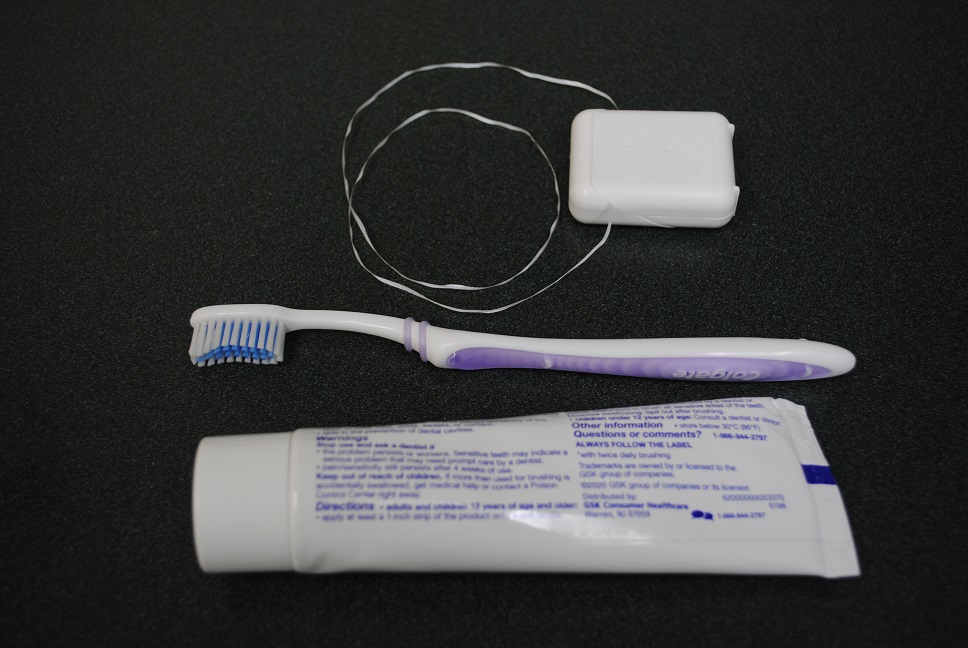October is National Dental Hygiene Month. Maintaining good dental hygiene is not only essential for a bright smile but also for overall health. Poor oral health can lead to various dental issues, including cavities, gum disease, and even other health problems throughout the body. Fortunately, there are several simple yet effective ways to ensure your teeth and gums stay healthy.

The cornerstone of any effective dental hygiene routine is regular brushing. Dentists recommend brushing your teeth at least twice a day, ideally in the morning and before bedtime. Use a soft-bristle toothbrush and fluoride toothpaste to remove plaque, food particles, and bacteria from your teeth and gums. Brushing not only keeps your breath fresh but also prevents the buildup of harmful plaque that can lead to cavities and gum disease.
Be sure to brush properly for the most benefit. Hold the toothbrush at a 45-degree angle to your gums and use gentle circular motions to clean all surfaces of your teeth. Do not forget to brush your tongue as well to remove bacteria that can cause bad breath.
While brushing is crucial, it cannot reach all the areas between your teeth and along the gumline. That is where flossing comes in. Dental floss helps remove trapped food particles and plaque from these hard-to-reach places. Make it a habit to floss at least once a day, ideally before bedtime. Use a gentle back-and-forth motion and be careful not to snap the floss against your gums, as this can cause injury.
If traditional flossing is challenging, consider using floss picks or interdental brushes, which can be more convenient and just as effective.
Mouthwash and antiseptic rinses can be valuable additions to your dental hygiene routine. These products can help kill bacteria, reduce plaque buildup, and freshen your breath. Look for mouthwashes and rinses that contain fluoride for added protection against tooth decay.
Please keep in mind, however, that mouthwash is not an adequate substitute for proper brushing. It’s essential to use these products as a complement to, not a replacement for, regular brushing and flossing. Rinses should be swished around your mouth for the recommended time on the label and then spit out. Avoid swallowing them, as they may contain ingredients that are not meant to be ingested.
What you eat can significantly impact your dental health. A diet rich in sugary and acidic foods can contribute to tooth decay and gum disease. Limit your consumption of candies, soda, and other sugary snacks, and opt for healthier alternatives like fruits, vegetables, and whole grains.
Calcium-rich foods like dairy products, leafy greens, and almonds can help strengthen your teeth. Drinking plenty of water throughout the day also aids in rinsing away food particles and maintaining optimal saliva production, which is crucial for neutralizing acids and protecting your teeth.
Even with a diligent home dental care routine, regular visits to the dentist are crucial for maintaining good dental hygiene. Dentists can detect early signs of dental issues and provide professional cleanings to remove stubborn plaque and tartar. Aim to see the dentist at least every six months or as recommended by your oral healthcare provider. These visits can prevent minor issues from turning into major dental problems and ensure your smile stays healthy and bright.
Maintaining good dental hygiene is not a difficult task, but it requires consistency and diligence. A healthy smile goes beyond aesthetics; it is an essential part of overall well-being. So, make dental hygiene a priority in your daily routine, and enjoy the benefits of a beautiful and healthy smile for years to come.
An Equal Opportunity Institution.
- Develop a Family Emergency Plan for Hurricane Season - June 30, 2025
- The Importance of Reviewing Annual Credit Reports - March 28, 2025
- Celebrating National Nutrition Month - February 27, 2025
